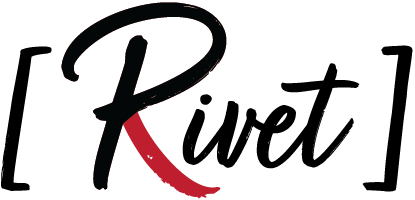
Taking on the project of writing a book is something that most people can’t do. Writing, editing, proofreading, and final drafts each take intricate and detailed thought and time. When you finally reach the end of the project you’ve dreamed of creating, you now must market and sell your beloved masterpiece. And, there are so many ways how to sell your book it can be overwhelming.
Not only are you selling your book, but you want to create a connection with the buyers of your book. These people are trusting your word that you have written a book for their enjoyment. A page-turner they sit by the fire with a warm coffee to read. Sounds nice… right?
The first step in selling your book is letting the world know your book is worth reading. That is why book reviews are essential for how to sell your book. Glowing book reviews, reports and nice comments are what you hope for as an author. Even reviews from other authors can create a positive impact, even if you don’t think your book was your best work.
Marketing your book can be more challenging than writing it, that is why a book review is so essential for selling your book. So, how to sell your book? One way is through book reviews. A book review can do the marketing for you, while you concentrate on other marketing efforts.
What does promoting your book mean?

Promotions apply to products and people. We as humans are always trying to sell things and ourselves for others to see and potentially invest in. No one is immune from promotion, even authors. Promoting your book is one of the most important things you can do as an author. Promotion helps you and your book get noticed and is the main avenue to learn how to sell your book.
You don’t have to be a marketing wiz to promote yourself or your book. But it does take manpower. Set aside a significant amount of time to promote your book or yourself as an independent or self-published author.
Some typical ways self-publishing authors promote themselves include:
- Social media. Start getting involved with online groups and resources
- Your own book or author website
- Local events
- Networking with friends and family
- Attending book fairs
Be mindful about what you can fill your plate with. For example, it’s great to join several Facebook groups, but it won’t make any difference if you are not an active participant in the group. Don’t like Twitter. Neither do I, so I don’t have a presence there. I focus on Facebook and LinkedIn where I enjoy participating in promoting myself.
What is a book review?

Book reviews are two things. They summarize the book and create an opinion about what you read. A review is important for your readers and writers, creating a fanbase and clientele.
Most book reviews include three parts:
- Summary of the book
- The reader’s opinion of the book
- Who is the book recommended for?
What a book review isn’t?
A book review is often limited to promoting the book, not you. Although your book might be something you put your heart into, it doesn’t reflect who you are as a person. Whether the book is a best seller or barely sold, your book reviews don’t define you as an author.
Your reviews also don’t define your religion or political views. You are made to believe whatever you want and live freely. If your book reviews are defining who you are, you’re wrong.
Your book review shouldn’t include all the good parts. A book review shows your strengths and your weaknesses too.
Where do you find a book review?
Amazon, Goodreads, local bookstores, etc. are some of the best places to find a valuable book review. Other platforms are personal blogs, self-publishing websites, and social media. All of these are places where you can promote your book. These sites are will give valuable and constructive feedback about your work. You are even able to respond to comments on most platforms.

- Book reviews can usually be found online. The most popular book review sites are Amazon and Goodreads. You can view my Goodreads profile here: https://www.goodreads.com/user/show/68052725-susan-griggs. For Amazon, you can find book reviews by customers on the book’s product page, or on Amazon’s book review page here: https://www.amazon.com/amazonbookreview?ref_=sin_abr_cp_nav.
- Traditional media sites put out some top-notch length reviews such as The New York Times book review https://www.nytimes.com/section/books/review or The New Yorker’s Page-Turner https://www.newyorker.com/books/page-turner.
- There are also popular review sites from publishing industry companies such as https://lithub.com/, The Broadcast by Reedsy https://reedsy.com/discovery/blog or Book Riot: https://bookriot.com/. I review books for Reedsy, and I love it. You can view my Reedsy book reviews here: https://www.rivetservice.com/book-review-blog.
- Personal blogs also serve as a main source for book reviews. Personal blogs can specialize by genre, so it’s perfect for a reader that really gets into a particular subject such as https://the-bibliofile.com/ or https://www.shereadsromancebooks.com/.
- Finally, some book review blogs will catch readers where they spend their time on social media. For example, check out the top Instagram book bloggers here: https://www.penguin.co.uk/articles/2021/best-instagram-accounts-books-reading.html. I found this Instagram account super fun @ice_cream_books.
Why is a book review important?
- It helps the customer/reader
Book reviews provide information letting a reader know what to expect when you are looking to buy a book. When I’m at a bookstore, sometimes I fill my arms with books until I can’t carry anymore. A good book review helps me narrow down the stack and feel confident about the money I am spending on just a few.
Most of the time, it is an audience that gives honest reviews on what they read. A review also summarizes the story’s main plot line and how the reader read it and obtained the information. A book review is a great way to make sure your book sells to a reader that will enjoy your type of book, and hopefully hook them on your writing style to purchase your next book.
2. Provides the author feedback
Although the five-star scales we commonly see rating books can quickly give a reader an idea of how good a book is, a book review goes deeper and gives an author more constructive information. A book review provides insights a reader took from the story, but the author didn’t intentionally put them into the story. So, as you can see, book reviews also create an open space for authors to see how they did based on a reader’s opinion.
Book reviews also give authors time to reflect on their work. The more reviews you receive, the better the opportunity an author receives tangible and useful feedback. Themes may emerge with the comments and reviews an author gets from readers. This constructive feedback can help improve the way an author writes future books. Ultimately, book reviews show authors ways to improve.
3. Free advertising
A book review is self-promotion and is a great way how to sell your book. Instead of spending time and money on promoting your book, a book review does the promoting for you. If a reader enjoyed the book, their online book review will stay online for as long as the website is up and running. More than likely, you will be able to find a positive book review on an internet search for years into the future. This self-promotion machine gives you more time to write. That’s great book marketing ROI.
What authors should be on the lookout for with book reviews
The number one rule with book reviews is that reviews are not a paid service. Book reviews are a great way how to sell your book, but you should not pay anyone to review your book. The premise is if you pay someone to review your book, won’t they inherently be dishonest and give you a glowing review for the money? Instead, ask people you know to review your book. Hiring someone for a book review is unethical unless the reviewer states that the review is paid content.
Another thing to look out for is paying too much attention to negative reviews. Once you put your book out there, it’s inevitable that you will receive at least one bad review because you cannot be a hit with everyone. You might even get a few hateful comments. This is the nature of putting things online. Everyone has to deal with them, so it’s best to ignore them and concentrate on the good reviews that will outweigh the bad.
For example, I’m too nice with my book reviews. I think after two years of “officially” reviewing books under Rivet, I’ve only given four bad reviews. One bad review I wrote was so honest that Amazon wouldn’t publish it for the language I used! When I cleaned up my language, I realized that Goodreads still listed it as a 4-star book! So, I really don’t think the author is paying attention to the negative 5-star review I wish I could have put on it.
Finally, seek a book blogger or reviewer who likes to read in the genre you are writing in. As mentioned above, there are several bloggers that only write reviews in specific genres. Before publishing your book, start following some of your favorite bloggers. Comment and participate in their blog posts. Then, when it’s time to publish your book, you can reach out to them with a personal and thoughtful note about the possibility of them reviewing your book. You will also have your review posted in a blog where there are like-minded readers ready and willing to buy and read your book.
Final thoughts
Book reviews are essential for authors. Once an author publishes a book, a book review will be the best way to promote and how to sell the book for free. Book reviews published in the right spot will gain more readers and increase sales. Finally, book reviews posted online should stay on the internet for years to come, promoting a book for free for years to come.
Don’t be afraid to publish a book because you are afraid of reviews. A good way to get a taste of what readers will say about a book once it’s published is to contract a beta reader. For more information on beta readers, please see my blog post here: Beta Reader. I offer beta reading services for authors. Please contact me at https://rivetservice.com/contact-rivet-service/ to discuss what you are looking for with a beta read and how I can help.
Special thanks to Carson Griggs, who is aspiring to be a writer once she graduates from Colorado Christian University. Much of the content in this blog post was written by her, and I know great places and things are headed her way in the future.

Thanks to:
https://unsplash.com/@corinnekutz







